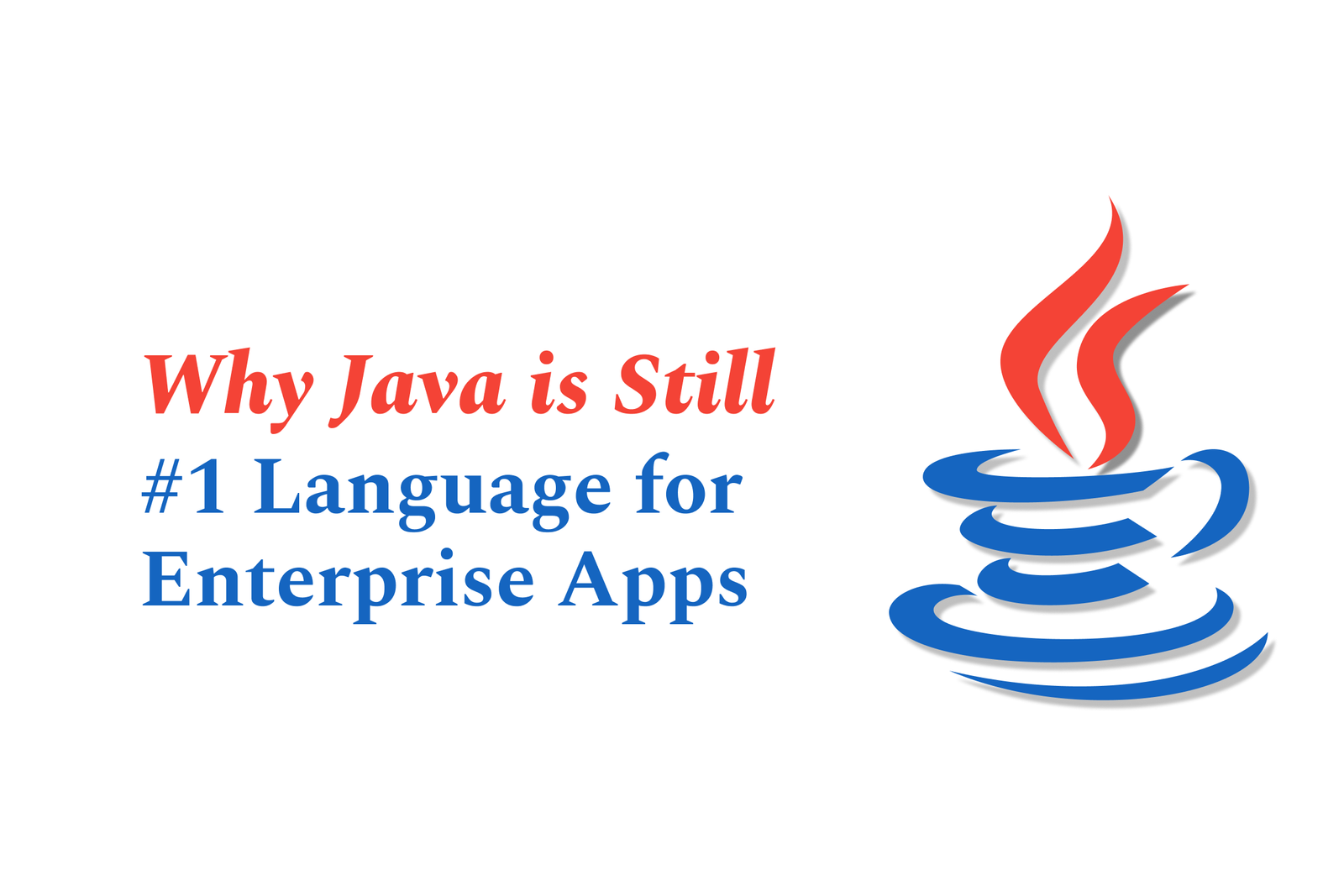Why Java Is Still the #1 Language for Enterprise Apps
Java remains the #1 language for enterprise apps due to its proven stability, strong performance, extensive ecosystem, continuous modernization, and robust security. Its vast community and powerful tools make it ideal for building scalable, reliable, and cost-effective business solutions.
Why Java is Still the #1 Language for Enterprise Apps
1 ) Established Dominance and Widespread Use
Java remains the leading programming language and development platform, extensively used in enterprises worldwide. With millions of developers and over 60 billion Java Virtual Machines running globally, it continues to be the preferred choice for large scale application development.
2 ) Continual Improvements and Modernization
Despite criticisms regarding older versions' verbosity and syntax complexity, modern Java versions and integrated development environments (IDEs) have significantly improved developer productivity. Java's ongoing enhancements streamline coding, reduce boilerplate, and align it with contemporary programming needs.
3 ) Robust Performance, Stability, and Security
The latest Java releases focus on advancing application performance, stability, and security, which are critical for enterprise grade applications. This makes Java a reliable and secure platform capable of supporting complex, mission critical business solutions.
4 ) Comprehensive Ecosystem and Tooling
Java’s ecosystem includes powerful tools such as Oracle's GraalVM, which enables native executables for faster startup and reduced memory consumption, and Java Management Service for efficient deployment and monitoring. These tools help enterprises optimize costs and maintain high application performance.
5 ) Strong Industry and Community Support
Java benefits from vast community support, extensive documentation, and numerous resources including tutorials, analyst reports, and case studies. This extensive backing assists enterprises in innovation, troubleshooting, and adopting best practices.
6 ) Enterprise Grade Capabilities
Java effectively reduces development costs and timelines while driving innovation and improving application services, making it ideal for building scalable, maintainable, and robust enterprise applications.
Summary:
Java’s entrenched position as the #1 language for enterprise applications is supported by its massive global adoption, continuous modernization, robust performance, comprehensive tooling, and strong community and industry backing. These factors collectively ensure Java remains a top choice for enterprises building critical business systems.
https://justacademy.in/news-detail/apple-swift-6.0-released-with-major-changes
https://justacademy.in/news-detail/swiftlint-updates-for-cleaner-code-in-2025
https://justacademy.in/news-detail/why-learn-ios-development-in-2025?
https://justacademy.in/news-detail/android-enterprise-management-features
https://justacademy.in/news-detail/ui-testing-in-flutter:-what's-new?
Related Posts
Java supports GDPR and data privacy by enabling secure data handling through encryption, controlled access, and precise data management. It allows developers to minimize PII exposure, ensure data confidentiality, and design workflows that comply with data protection regulations effectively.
Java code quality tools have evolved to include advanced static analysis, integrated security checks, and AI-powered code reviews. These updates help developers detect bugs, enforce coding standards, and enhance security, streamlining the development process and improving overall code reliability.
Java remains a cornerstone in big tech companies, evolving with modern features like records, pattern matching, and virtual threads. Its robust ecosystem, enhanced performance, and growing AI integrations keep it vital for both legacy systems and innovative new projects.
Java and CI/CD pipeline optimizations streamline Java application development by automating builds, tests, and deployments. They improve efficiency through parallelization, caching, and secure secrets management, enabling faster feedback loops and more reliable, scalable software delivery.
Java supports modern cryptography standards through its flexible Java Cryptography Architecture (JCA), enabling integration of advanced algorithms like AES, EdDSA, and post-quantum tools. Libraries like Bouncy Castle offer FIPS-certified, hardware-accelerated implementations for secure development.
Java 23 enhances record patterns by enabling concise, direct destructuring of record components within pattern matching, simplifying type checks and data extraction. This improvement boosts code readability and expressiveness by reducing boilerplate in handling immutable data classes.
Java remains a top choice for mobile app backends, powering scalable, secure, and high-performance server-side solutions. Latest trends include cloud-native microservices, reactive programming, and enhanced JVM optimizations, enabling efficient, flexible, and robust mobile backend development.
Java SE 24 and LTS Java SE 21 offer enhanced features and performance, while Apache Spark 4.0.0 introduces Scala 2.13 support and advanced ML and SQL capabilities. Together, they empower developers to build scalable, high-performance data applications with modern tools.
JUnit 5 modernizes Java testing with a modular architecture, improved assertions, and seamless Java 8+ support. Beyond JUnit, tools like Mockito and AssertJ enhance mocking and assertions, creating a powerful, flexible ecosystem for writing clean, efficient Java unit tests.
Java plays a pivotal role in cloud automation tools by providing a robust, platform-independent language used to build scalable automation frameworks like Jenkins and Selenium, enabling efficient CI/CD pipelines, testing, and orchestration across diverse cloud environments.










